The GnarMule takes on the Grand
Story by: Cameron Fenton
Photos by: Dawson Friesen
Running Lava Falls was a great final test for both my paddling skills and how Alpacka’s new GnarMule handles massive whitewater. At least that's how I rationalized doing it last November.
To be fair, I was following a 9 time Grand Canyon veteran who knew the line pretty well, and had been feeling pretty confident in the GnarMule since I hopped in it about halfway through our 12 day trip. I lined up behind Nick, remembering the key advice to avoid the massive hole at the top of the rapid and paddled in. All I really remember is charging into the massive Class V wave at the top of the rapid, hoping I had made the right line choice and preparing for the onslaught of water. I braced hard as the river rose and fell above, beneath and around me, and managed to stay upright all the way through the tail waves, cementing my opinion that the GnarMule really might be the perfect Grand Canyon boat, at least for me.
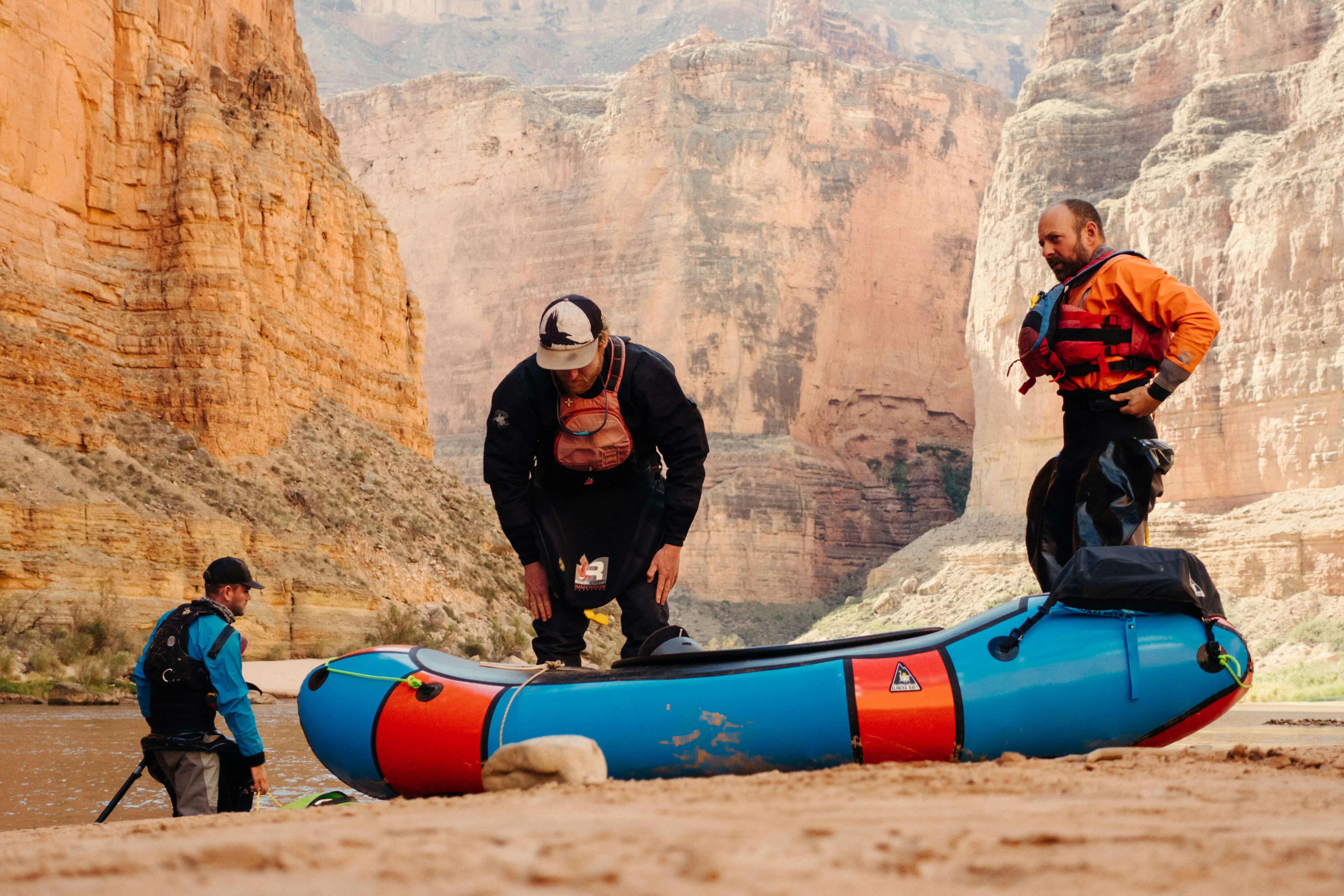
Photo Credit: Dawson Friesen
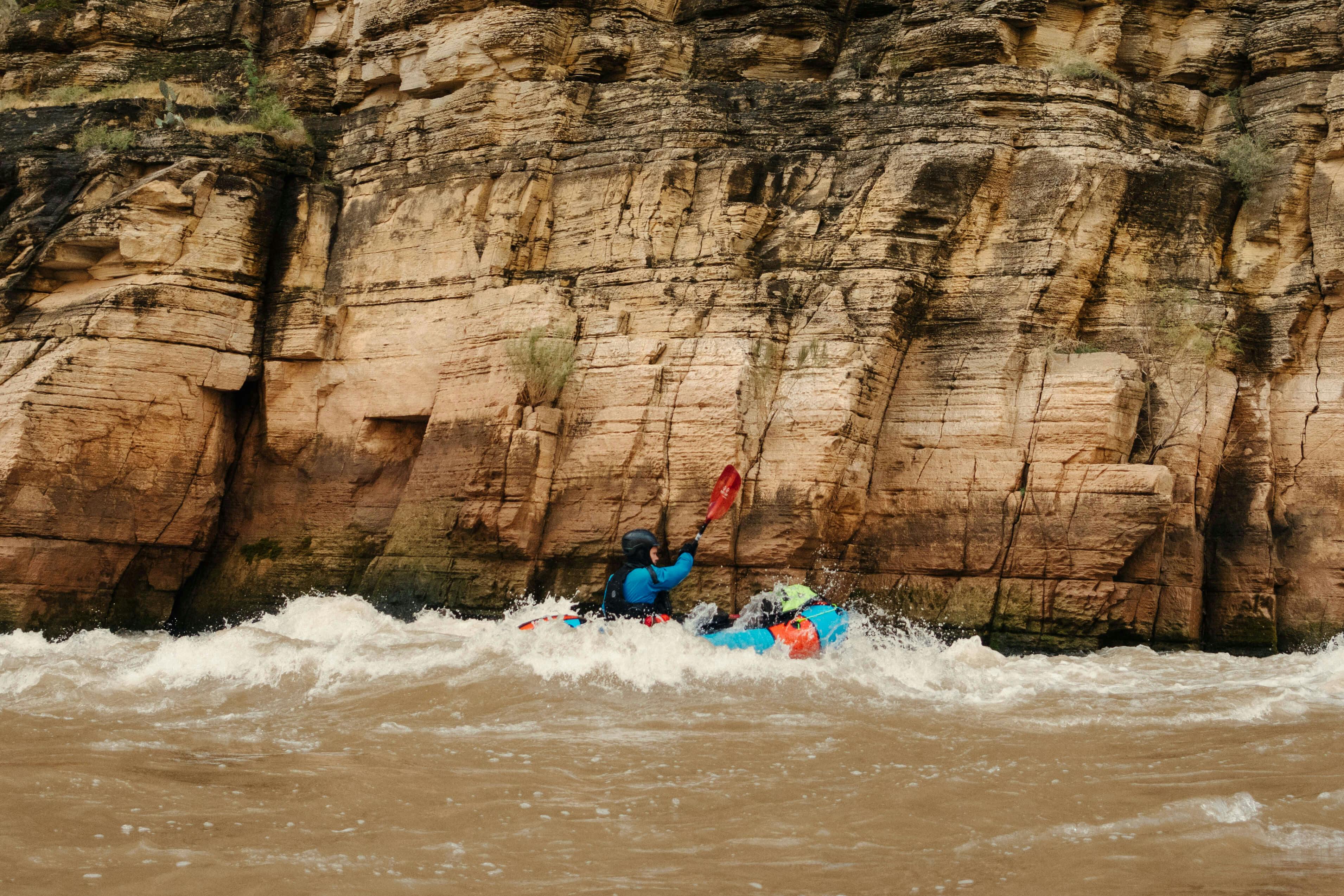
Photo Credit: Dawson Friesen
Let’s back up a bit. I’ve been packrafting for around a decade. Most of my paddling has been around where I live in Southwestern British Columbia, with a few trips in Alaska and parts of the United States. I’ve paddled a lot of Pacific Northwest Class III and IV water, but nothing the scale and size of the Grand Canyon. I’ve paddled a lot of boats in that time, but my go to is a size large Gnarwhal, which is what I paddled for the first 5 days of a self-supported trip down the Grand Canyon in early November 2022.
I switched boats to try out the GnarMule around river mile 100, roughly halfway through the trip both in terms of time and distance. By the time I jumped in the boat, I was already both impressed and intrigued by its potential. Inside the GnarMule’s tubes, we had stored most of the group gear the National Park Service requires for self supported trips, in particular extra paddles and extra PFDs. It also held an extra boat, which allowed us to have the option for paddling different styles of boats on the trip, and meant we had a backup in case of a critical gear failure. But that’s not all. The GnarMule also contained all of its paddlers gear, including a lot of comforts that go a long way on a two week river trip - fresh food, beverages, seats and plenty of layers in case the temps dropped, for example.
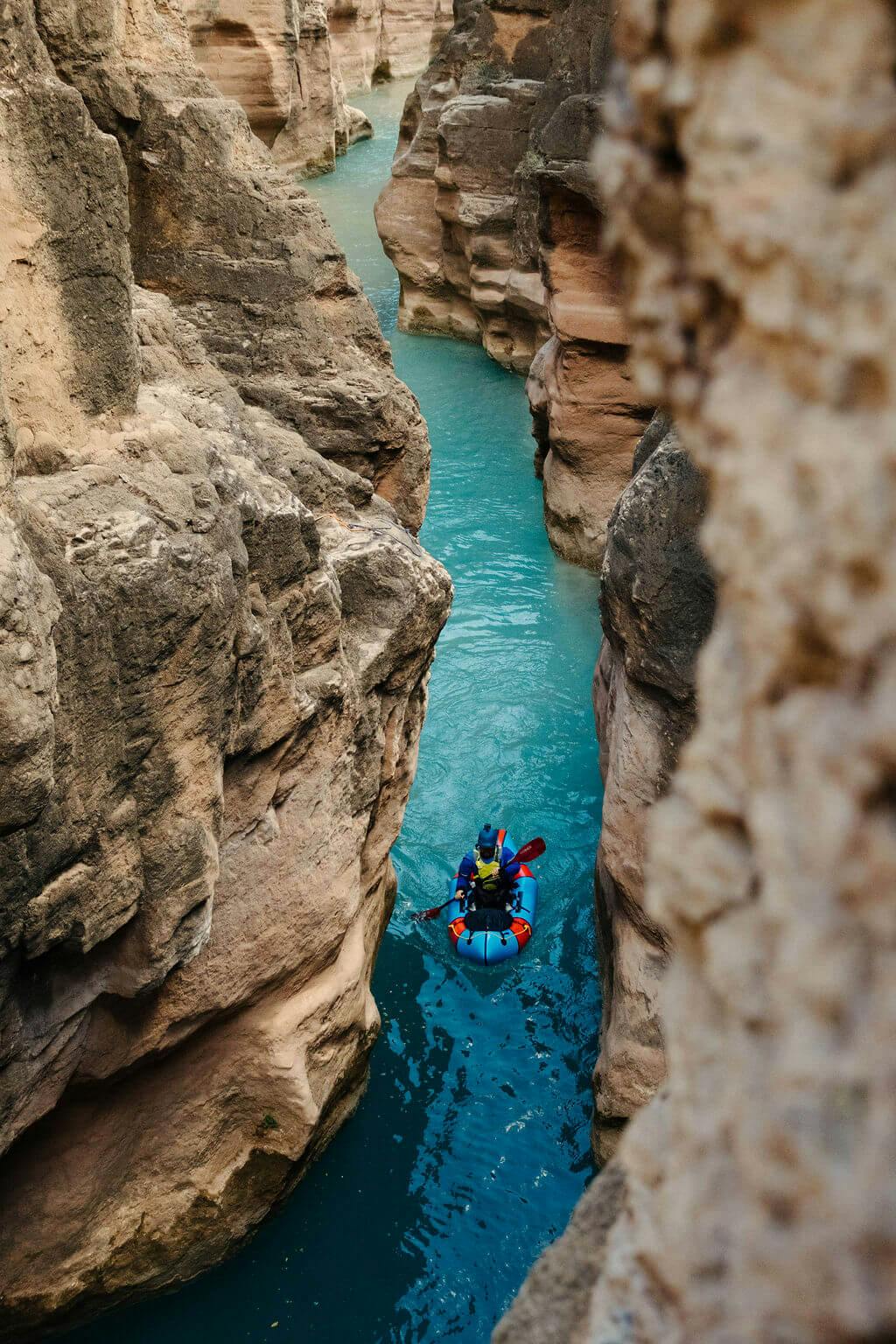
Photo Credit: Dawson Friesen
Getting into the GnarMule, I immediately noticed a few things. First, I had a lot more leg room than I did in my Gnarwhal. For long days on the river, this was way more comfortable than in my Gnarwhal or Expedition. But, the whitewater rigging also meant that I could snug the fit up to a more performance fit if and when I needed it. Second, it tracked exceptionally well. The Grand Canyon has a lot of weird boils. In my Gnarwhal, these boils could really push me around, but the GnarMule, especially with the added weight, was able to stay on line a lot more effectively than the smaller boat. Third, it was exceptionally stable, the boat just felt hard to flip.
That being said, there was a bit of a learning curve for paddling the GnarMule. The GnarMule is a wider boat than my Gnarwhal, so I do wish I had a longer paddle in it than I had brought on the trip. Additionally, this width means the boat responds more slowly to body movements and edging, meaning paddling it effectively requires more paddle driven movements than edging. When catching eddies, for example, I found myself initiating sweep strokes to swing into eddies far more in the GnarMule than I typically do in my Gnarwhal.
I also needed to paddle with a slightly different strategy, being more considerate of my line choice since the combination of the size of the boat and the extra weight from the group gear meant the boat was slower to respond to me. The flipside was that the GnarMule took bigger hits more effectively than my Gnarwhal. To test this, I ran the GnarMule straight down the gut of the first big rapid we encountered once I made the switch, Walthenberg. A “6” on the Grand Canyon scale, the GnarMule’s big front end rose up and over the crest of a massive crashing wave in the middle of the rapid. Behind me, the boat following my line (not a GnarMule) was tossed and flipped by the same feature. This stability is especially notable on the sides, and was very helpful in navigating some of the towering lateral waves on the Colorado River.
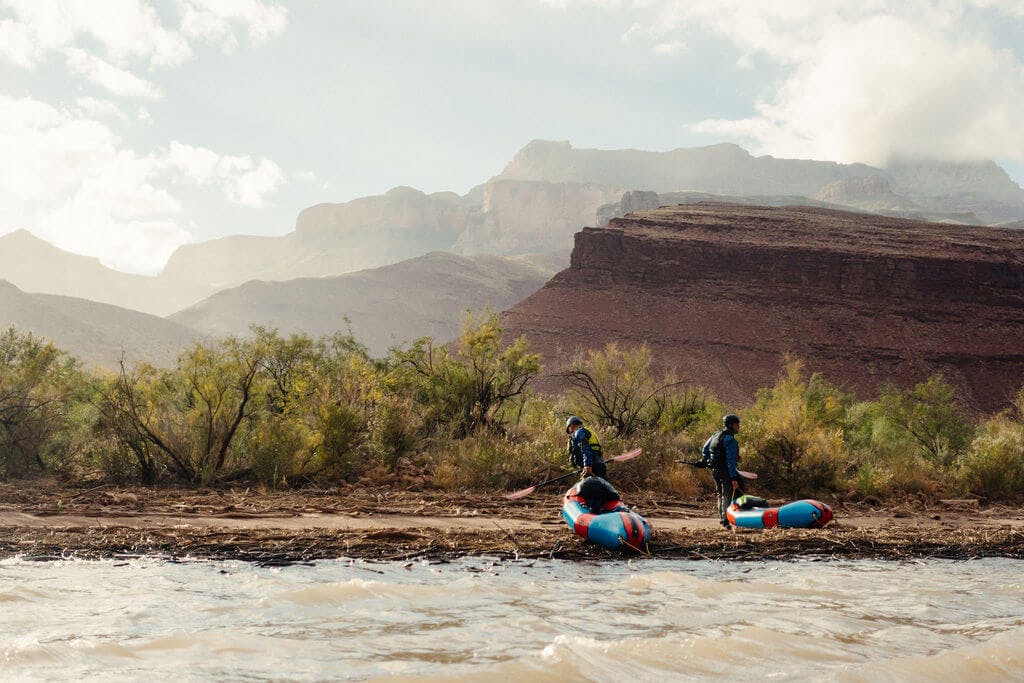
Photo Credit: Dawson Friesen
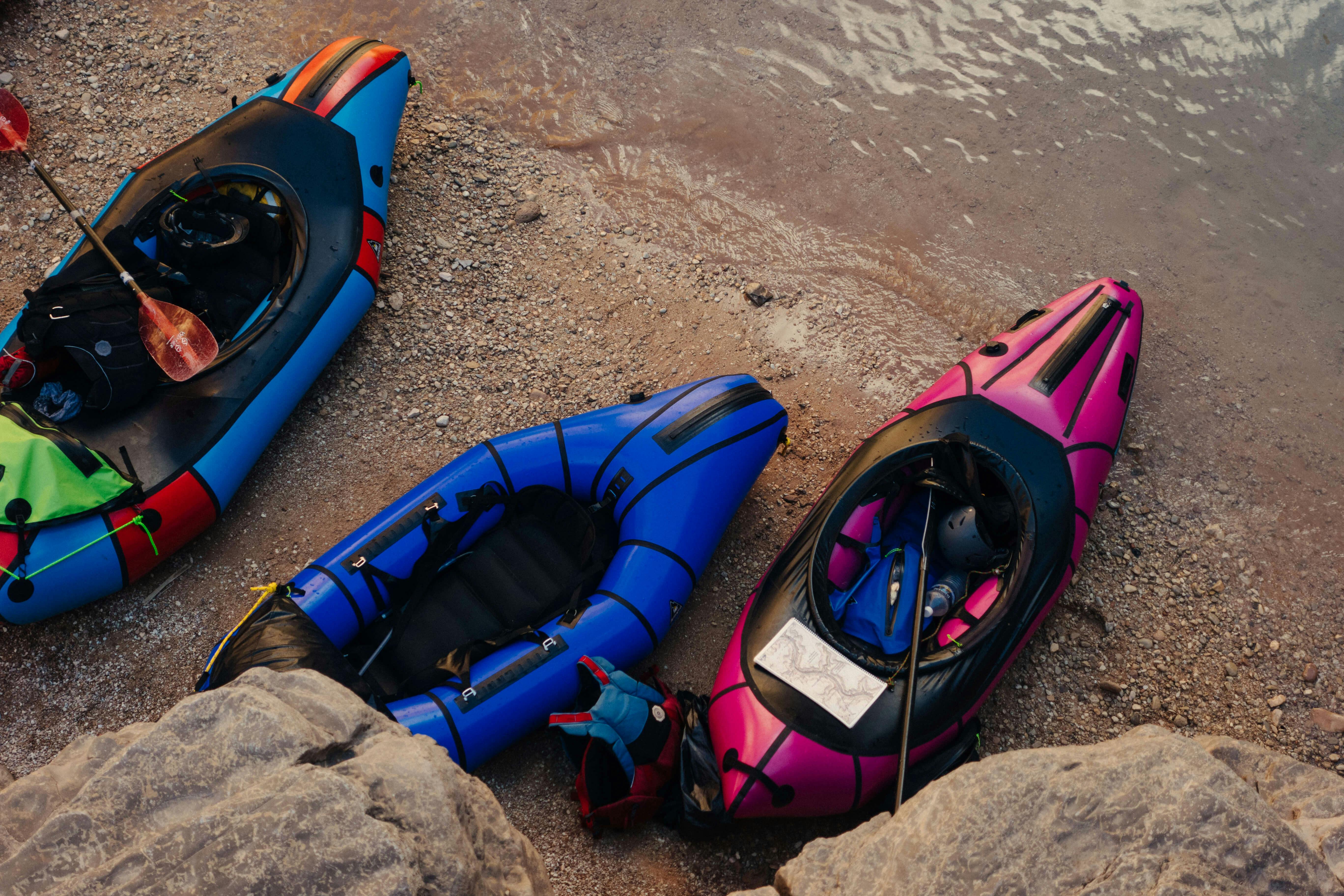
Photo Credit: Dawson Friesen
Like I said earlier in this piece, the GnarMule was an exceptional boat for navigating the Grand Canyon, but that’s not all it can do. As we made our way down the river, I started dreaming of other trips to do with this boat. It's obviously an amazing boat for big river trips, both in terms of how well it handles the water and the options it gives the paddler in terms of gear capacity. But, its ability to handle big whitewater, coupled with its length and wide bow make me think it might be the answer to my long quest to find the perfect boat for big water bikerafting, both in rivers and rough coastal waters. For bigger paddlers looking for a quiver-killer boat, it’s also a worthy consideration. It tracks exceptionally well on flat water, while also handling whitewater meaning that it can be used for mellow flatwater, but inflate the footrest and slip on the thigh straps and you have a solid whitewater vessel as well.
I really loved this boat and it’s got me dreaming of future trips where a GnarMule could really shine. If you’re a bigger boater, have a Grand Canyon or other big river trip coming up, or you’re just looking for a packraft that can haul a lot of gear, it’s worth a look.
About the Author
Cam Fenton is a paramedic and guide based in Squamish, BC. He holds a Level 3 Packraft Instructor certification from the American Canoe Association and works as a packrafting guide and instructor with Ascent Guides. Follow along on his adventures via Instagram at @camfenton604.

